Partly Cloudy, 71° F

With the rapid adoption of artificial intelligence (AI) in the workplace, Spokeo wanted to understand how professionals feel about utilizing this technology. Are they using AI in their current role? Do they think it will impact their industry? And do they have any concerns about it?
Surveying 1,027 respondents active in the workplace uncovered a range of perceptions – both positive and negative – about AI at work.
Three quarters of survey participants (74.8%) had concerns about AI impacting their industry. This attitude was broadly consistent across genders and ages. Female respondents were slightly less concerned AI would impact their industry negatively compared to male respondents (72.5% compared with 76.6%).
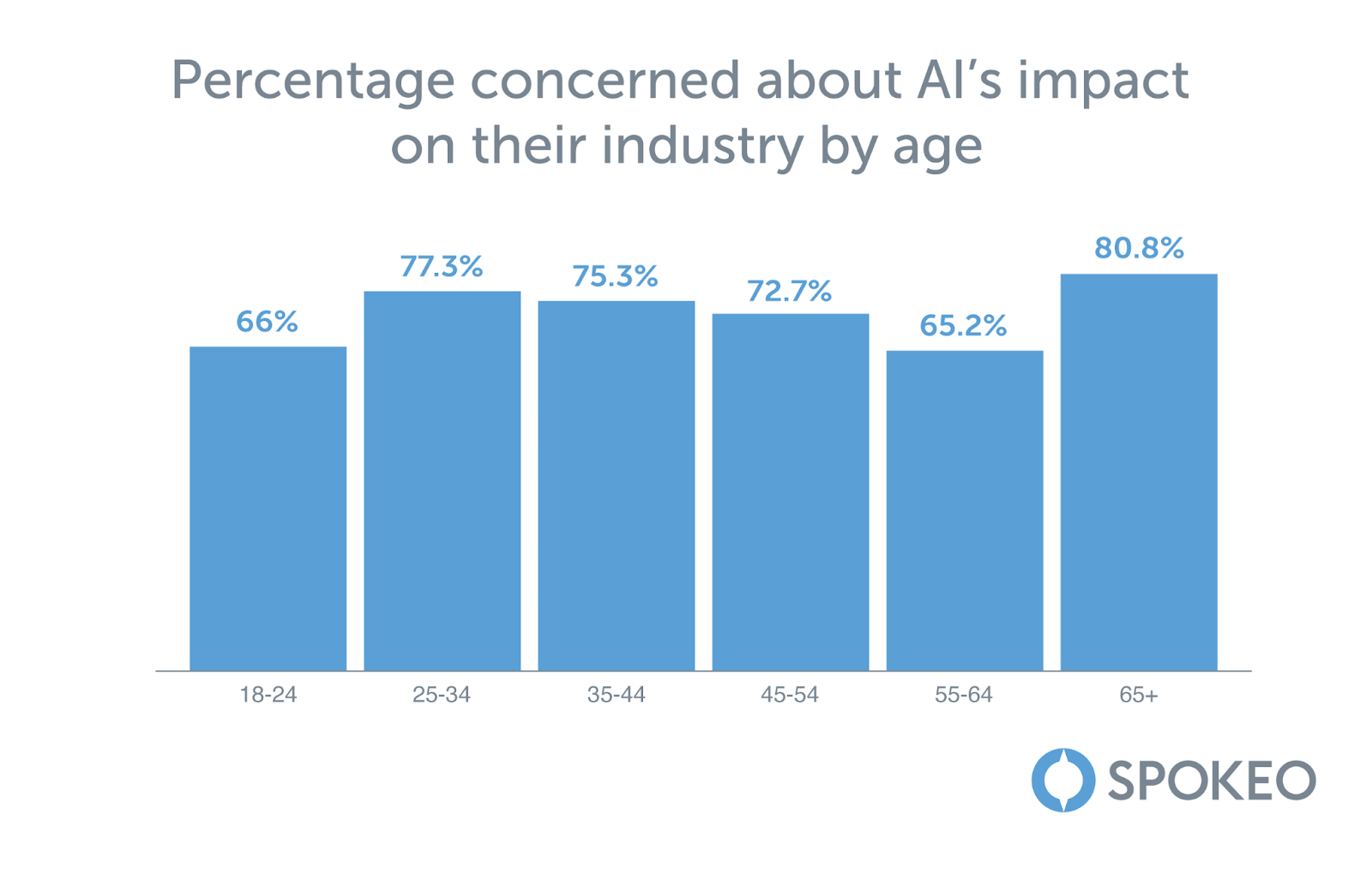
The age groups which were least and most fearful of AI's impact on their industry were also the oldest and youngest age brackets in the study: with 66% of 18-24 year olds showing concern rising to 80.8% of over 65s.
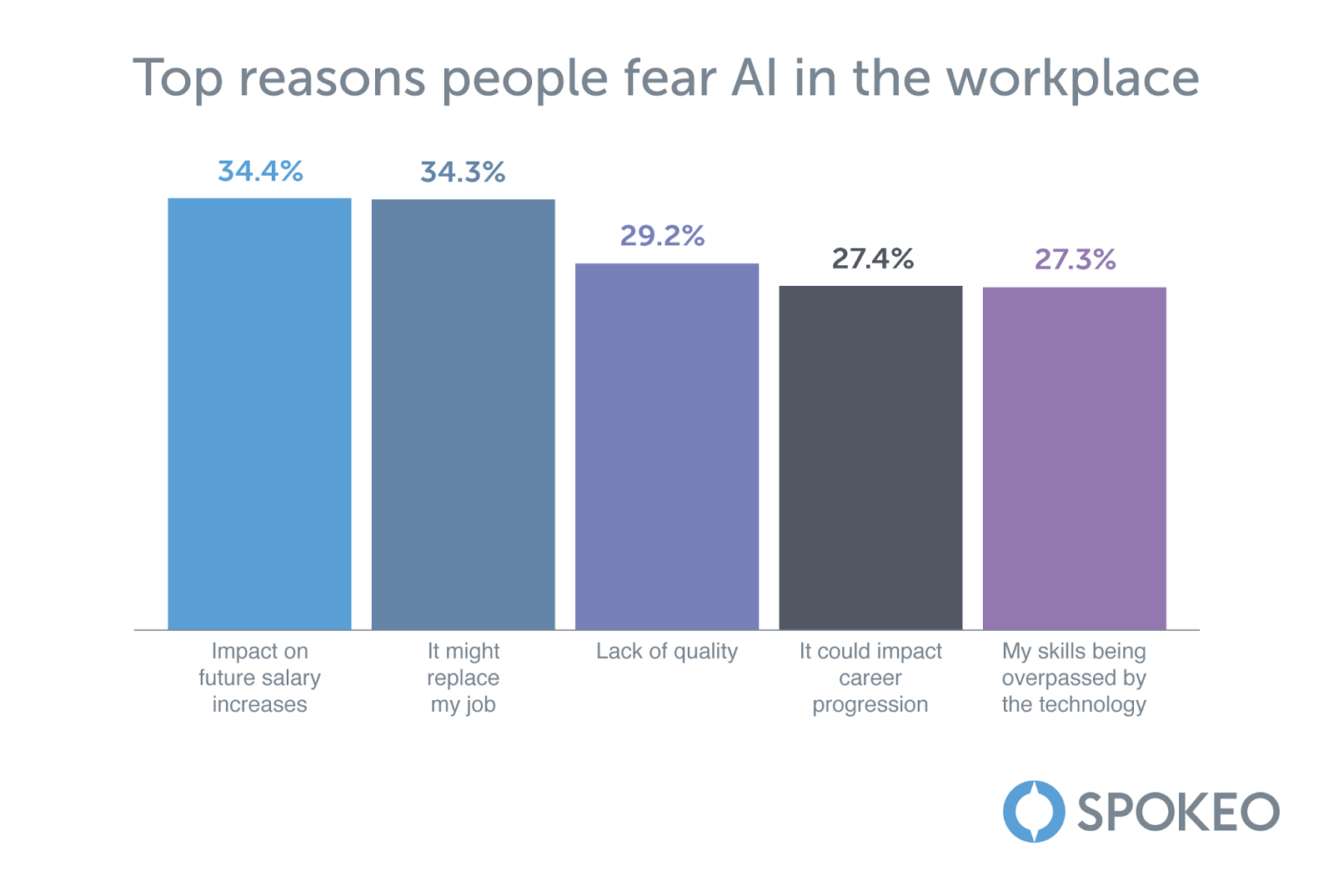
Among the biggest concerns were AI's impact on future salary increases (34.4%) and worries that AI might replace their job (34.3%).
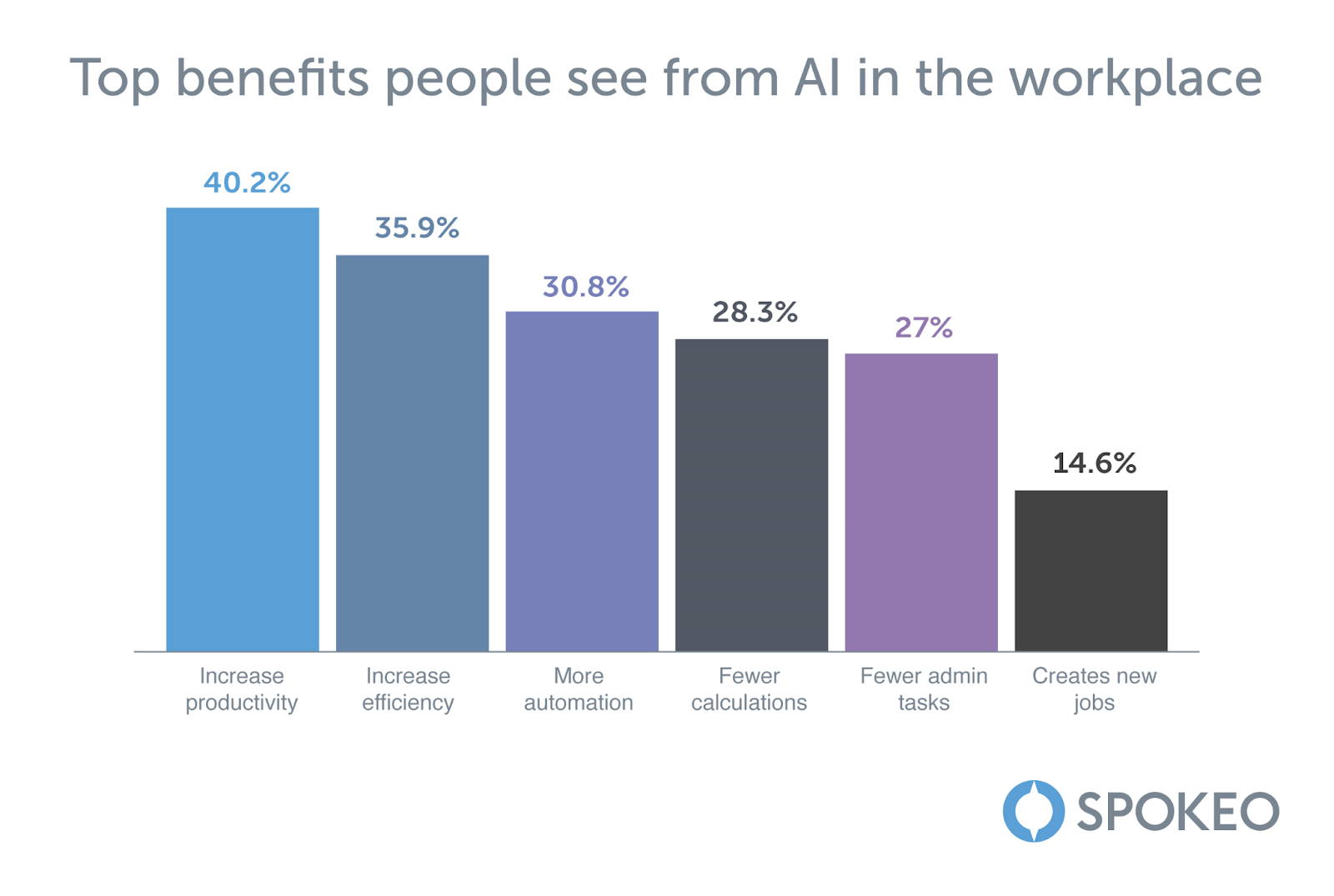
However, more than three quarters (78.1%) of Americans also believe that AI could make their job less stressful, either now or in the future. The majority of Americans, 79.1% of respondents, thought employers should offer training for utilizing ChatGPT and AI tools within their roles – indicating a desire to not get left behind and to take proper advantage of the new tools.
Other benefits of AI include increased productivity, cited by 40.2% of respondents. Only 7.7% of those surveyed felt the new technology was of no benefit at all.
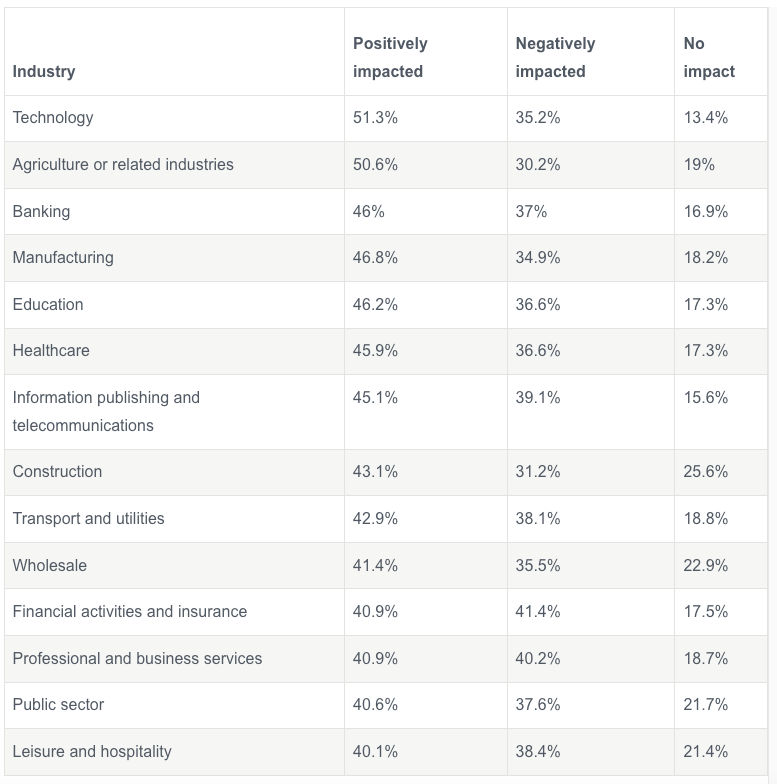
The industries that respondents thought will be most positively impacted are Technology (51.3%), Agriculture (50.6%), and Manufacturing (46.8%).
It is interesting to note that a similar percentage of Americans felt industries would either be negatively affected by AI or not affected at all. The industries that Americans felt could be most negatively impacted by AI are Financial activities and insurance (41.4%), Professional and business services (40.2%) and Leisure and hospitality (38.4%).
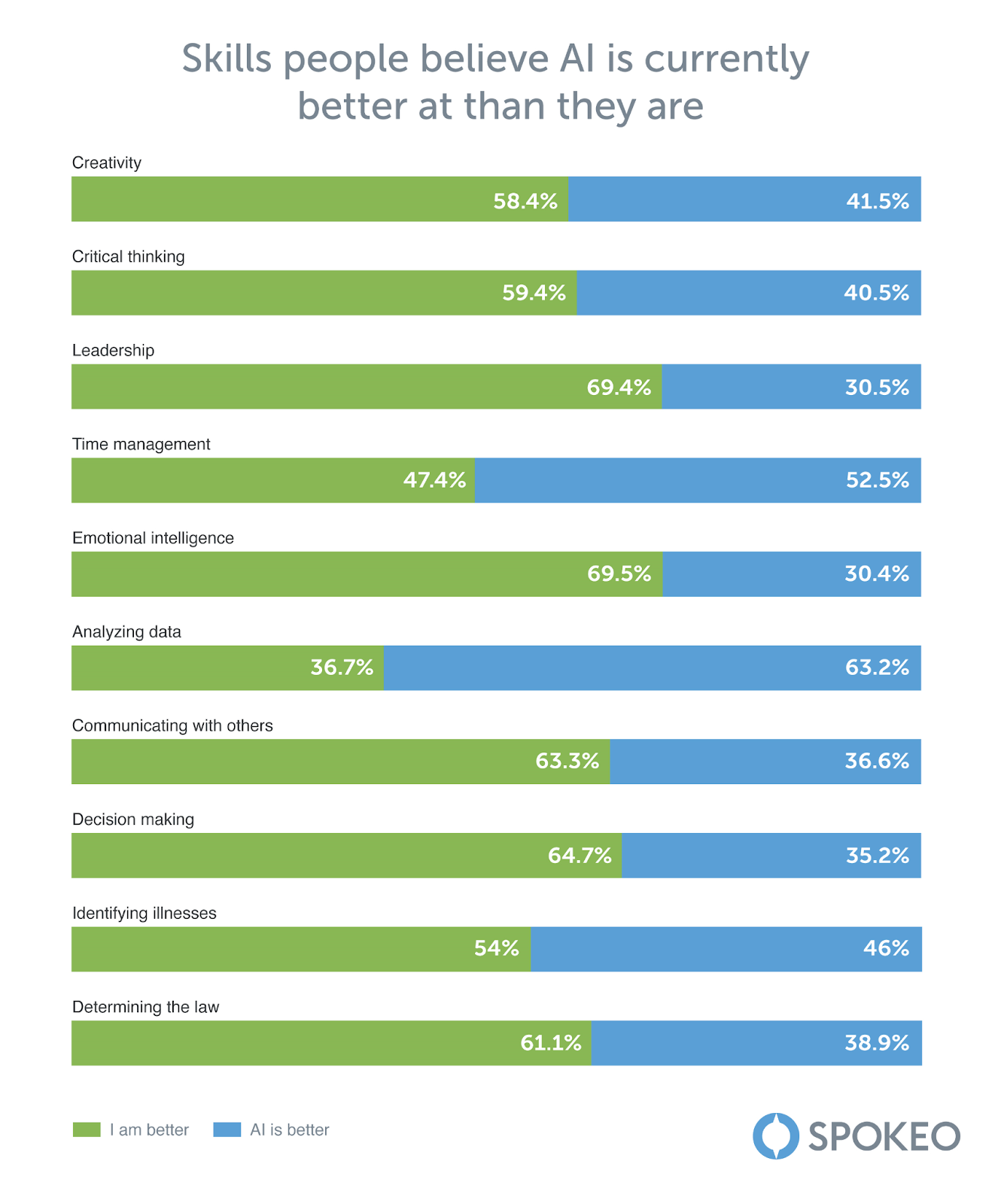
Surprisingly, two thirds of professionals (66.6%) believed AI could currently do their job, possibly overestimating AI's ability to perform a wide range of human tasks.
However, Americans were still confident they could outperform AI in their role, in all skills except data analysis (63.2% thought AI is better) and time management (52.5%).
In early October Jamie Dimon, CEO of JPMorgan, made headlines with his prediction that AI will eventually cut down the work week to three and a half days. The majority of Americans seem to agree. In fact, three quarters of respondents (76.7%) believed that AI could help them work fewer days in the future.
Despite some concerns about the impact of AI on their industry, 62.8% of people said they would be for AI if they could receive the same income and the technology could reduce the number of working days in the week.
Additionally, people think AI could help not only reduce the amount of work they do, but it could also reduce the stress of their existing job and workload. 78.1% of respondents felt AI could reduce their work-related stress overall, concluding an overwhelming majority who do also see numerous personal benefits to incorporating AI in its current form and as it continues to improve.
Overall, the study suggests that although Americans are wary of the potential consequences of AI technology, with the right training by employers, most people also see the potential benefits that the technology may reap in the workplace – both professionally and for their own personal well-being.
Using Amazon's survey platform, Spokeo surveyed 1,097 Americans in October 2023 about topics relating to AI and its impact on their industry.
The breakdown of the people surveyed was as follows:
Age ranges:
Gender:
This story was produced by Spokeo and reviewed and distributed by Stacker Media.